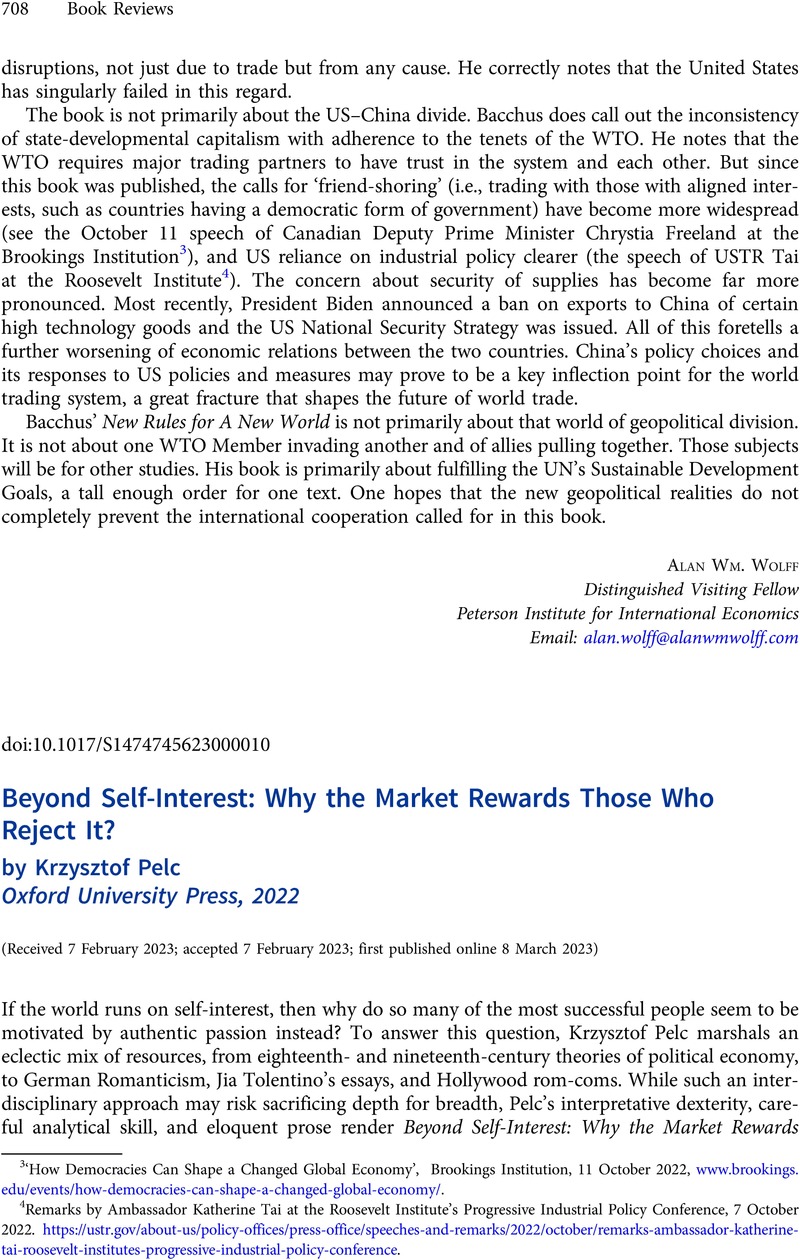Published online by Cambridge University Press: 08 March 2023

1 Pelc, K. (2022) Beyond Self-Interest: Why the Market Rewards Those Who Reject It. Oxford: Oxford University Press, 11–12Google Scholar.
2 Pelc, 23.
3 Pelc, 65–66.
4 Pelc, 68.
5 Smith, A. (1976) An Inquiry into the Nature and Causes of the Wealth of Nations, vol. 2. Indianapolis, IN: Liberty Fund, I.ii.2, 26–27Google Scholar.
6 Smith, I.ii.2, 26.
7 Pelc, 86–87.
8 Pelc, 92.
9 Pelc, 139–140.
10 Pelc, 169.
11 Müller, J.-W. (2016) What Is Populism?. University of Pennsylvania PressCrossRefGoogle Scholar.
12 Pelc, 98. For a similar argument, see B. Litvin (2022) ‘“This Hearing Should Be Flipped”: Democratic Spectatorship, Social Media, and the Problem of Demagogic Candor’, American Political Science Review, 1–15, 6, https://doi.org/10.1017/S0003055422000508.
13 Pelc, 171.
14 Pelc, 239.
15 Pelc, 236.
16 Michener, J. (2018) Fragmented Democracy: Medicaid, Federalism, and Unequal Politics. Cambridge: Cambridge University Press, 169CrossRefGoogle Scholar.
17 Collins, K.R. (2020) ‘Observed without Sympathy: Adam Smith on Inequality and Spectatorship’, American Journal of Political Science 64(4), 1034–46CrossRefGoogle Scholar, https://doi.org/10.1111/ajps.12544.
18 Soss, J., Fording, R.C., and Schram, S.F. (2011) Disciplining the Poor: Neoliberal Paternalism and the Persistent Power of Race. Chicago, IL: University of Chicago Press, 85–101CrossRefGoogle Scholar.
19 Eubanks, V. (2019) Automating Inequality: How High-Tech Tools Profile, Police, and Punish the Poor. New York, NY: PicadorGoogle Scholar.
20 Pelc, 37.